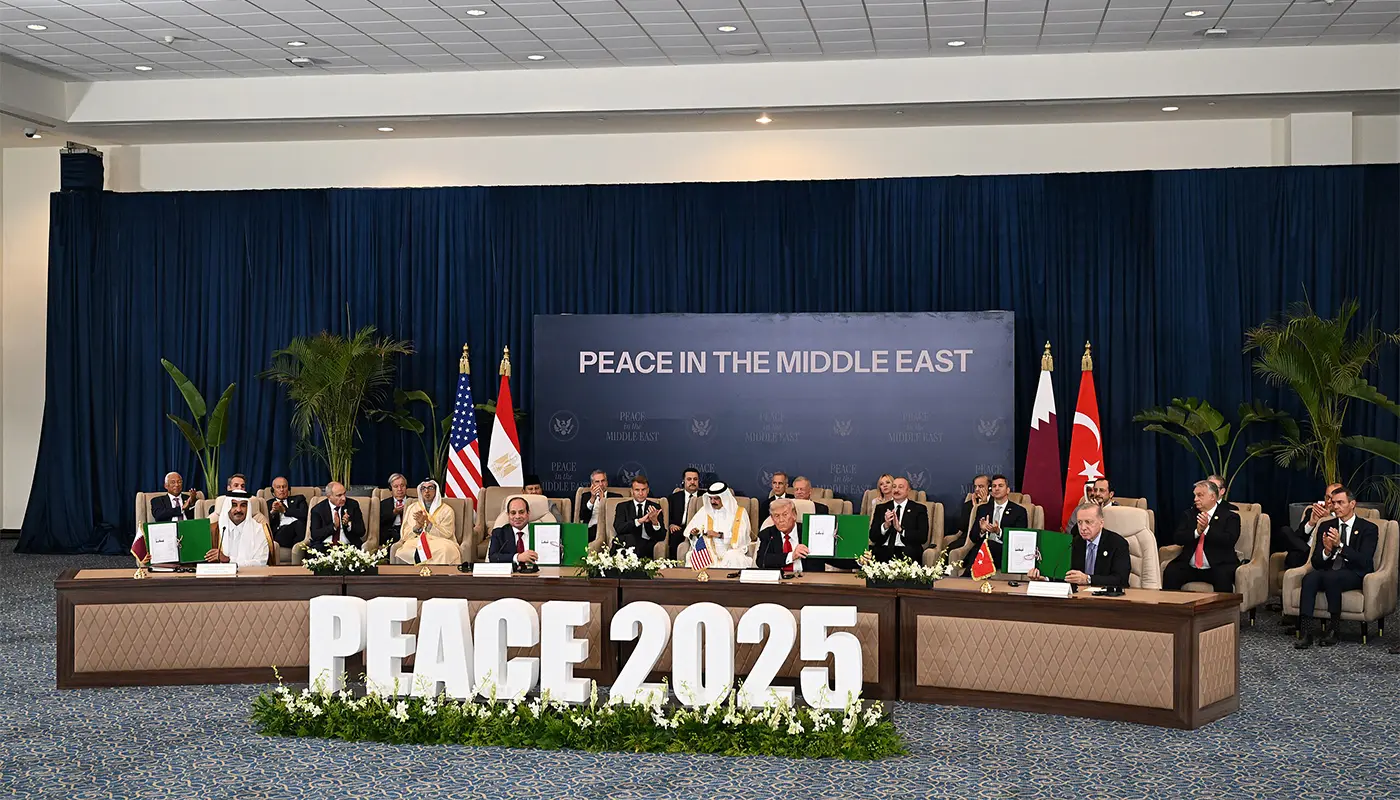CAIRO – A landmark diplomatic gathering took place on 13 October 2025 in Sharm El Sheikh, Egypt, as over 20 nations convened to endorse the first phase of a peace plan designed to end the Israel’s war in Gaza and begin reconstruction efforts. The summit was co-hosted by U.S. President Donald Trump and Egyptian President Abdel Fattah el-Sisi.
Although neither Israel nor Hamas formally attended, both parties had earlier agreed to a partial implementation of the U.S.-proposed plan, which included a ceasefire and a prisoner-hostage exchange.
During the summit, the participants signed a joint “Trump Declaration for Enduring Peace and Prosperity,” emphasising commitments to halt hostilities, support humanitarian work, and lay the groundwork for Gaza’s recovery.
However, critics noted the document lacked concrete detail regarding governance and long-term security.
President Trump used the platform to declare a new era in the Middle East. He asserted that “the war is over,” and hailed the summit as a turning point after over two years of intense conflict. He also called for Israel to pivot toward peace and reconstruction.
A key outcome of the summit was the endorsement of a joint Egypt–Qatar–Turkey–U.S. statement backing the ceasefire and pledging to support “enduring peace.”
In parallel, the International Monetary Fund warned that while the agreement offers a chance for long-term economic recovery in Gaza, the process will be complex.
Observers cautioned, however, that many challenges remain. Hamas has publicly asserted it will not surrender control over Gaza or disarm under terms it sees as imposed by Israel.
Meanwhile, questions around the future governance of Gaza, the composition and role of any peacekeeping force, and the authority of the Palestinian Authority (PA) remain unresolved.
Tensions around invitations also shaped the summit’s political dynamics. Turkey threatened to abstain from the meeting unless Israel’s Prime Minister Benjamin Netanyahu was disinvited. Subsequently, the invitation to Netanyahu was cancelled.
In the wake of the summit, FIFA announced its intention to assist Gaza in rebuilding football infrastructure, citing sport’s role in restoring community hope.
Additionally, EU and international leaders pledged logistical support for stabilisation initiatives and border security.
Nonetheless, the overall road ahead remains fragile. Critics argue the summit’s accomplishments are largely symbolic unless accompanied by enforceable plans, robust oversight, and sustained political will.
Sources: Reuters, The Guardian, Al Jazeera








